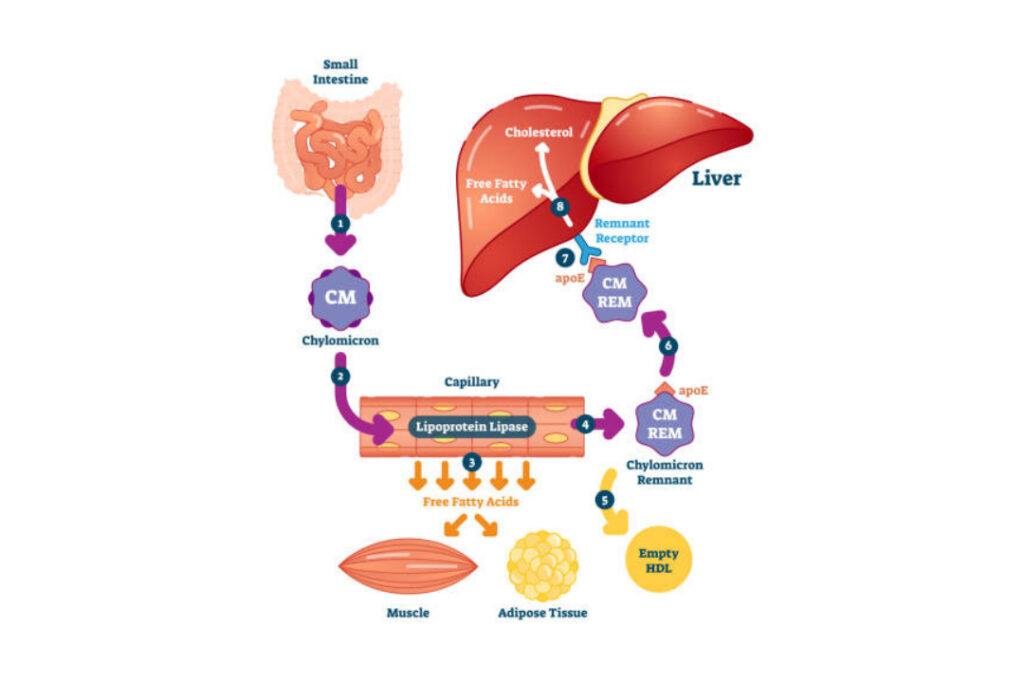
Tubaa Madani
Bariatric Dietician & Content Writer

How Understanding the Role of Hormones in Fat Metabolism Can Help Combat Obesity!

Introduction -
Obesity is a concerning issue that affects many people worldwide. Multiple factors, such as lifestyle, diet, and genetics, contribute to this condition.
However, one of the leading causes of obesity is a hormonal imbalance that affects fat metabolism. Hormones play a crucial role in our body’s overall balance, and they directly impact how our body stores and burns fat. Understanding the role of hormones in fat metabolism can help combat obesity and pave the way for a healthier lifestyle.
Leptin: Hormone that controls Appetite -
Ghrelin is made in your stomach and signals your brain when you’re hungry. Ghrelin and GHSR play important roles in the modulation of energy homeostasis and lipid metabolism, and they widely work in the CNS and multiple peripheral tissues, such as the pancreas and adipose tissue. Therefore, targeting ghrelin and its receptor may provide a therapeutic benefit for people with obesity and glucose–lipid metabolism disorder.
Adiponectin: The Hormone That Boosts Metabolism
Adiponectin is a hormone secreted by fat cells that has gained attention for its role in metabolism. It increases insulin sensitivity which helps regulate glucose levels in the body, making it a key player in the fight against obesity and type 2 diabetes. This hormone also has anti-inflammatory properties, reducing the risk of heart disease. However, low levels of adiponectin have been linked to an increased risk of obesity and related complications. Fortunately, several lifestyle changes can increase adiponectin levels, including regular exercise, a healthy diet, and quality sleep. Omega-3 fatty acids, found in foods like fatty fish, can also boost adiponectin production. By prioritizing a healthy lifestyle, you can optimize your adiponectin levels and promote a healthy metabolism.
Cortisol: The Hormone That Can Increase Fat Storage
Cortisol, also known as the ” stress hormone,” is a hormone that is released in response to stress. When cortisol levels in the body are high, it can result in increased fat storage, particularly in the abdominal area. Studies have shown that chronic stress can elevate cortisol levels, resulting in weight gain and obesity. However, there are strategies that can help combat the effects of cortisol. Exercise, for example, has been shown to reduce cortisol levels and promote fat loss. Adequate sleep and stress management techniques like meditation can also help to balance cortisol levels. In addition, a healthy diet rich in whole foods like fruits, vegetables, lean proteins, and healthy fats can help to regulate cortisol levels and support overall hormone balance. Foods high in sugar and processed carbohydrates, on the other hand, can exacerbate cortisol imbalances and contribute to weight gain. Understanding the role of cortisol in fat metabolism is crucial for combating obesity and achieving optimal health. By implementing lifestyle changes and dietary strategies, we can help to balance cortisol and promote healthy fat loss.
Estrogen: The Hormone That Affects Body Fat Distribution
While many people may associate estrogen with women and reproductive health, this hormone actually plays a crucial role in body fat distribution in both men and women. Estrogen is responsible for regulating the distribution of fat in certain areas of the body, including the hips, thighs, and breasts. In women, higher levels of estrogen are associated with a lower risk of obesity and a more favorable body fat distribution, while in men, estrogen helps to prevent excess fat accumulation in the abdominal area. However, as both men and women age, levels of estrogen naturally decline, which can contribute to an increase in body fat accumulation around the midsection. Fortunately, there are several strategies that can help to balance estrogen levels and promote healthy fat distribution. These include maintaining a healthy weight, engaging in regular physical activity, consuming a diet rich in phytoestrogens, and avoiding exposure to endocrine-disrupting chemicals. By understanding the role of estrogen in fat metabolism, individuals can take proactive steps to maintain a healthy body composition.
Conclusion -
In conclusion, hormones play a crucial role in fat metabolism, and understanding their role can help combat obesity. By regulating appetite, insulin, and other hormones, we can control our body weight. Along with a healthy diet and exercise, understanding how hormones work can help us achieve our weight loss goals and maintain a healthy lifestyle. It’s important to remember that everyone’s body is different, and what works for one person may not work for another. However, by working with healthcare providers and incorporating hormone-balancing practices into our daily routines, we can make positive changes to our bodies and improve our overall health and wellbeing







